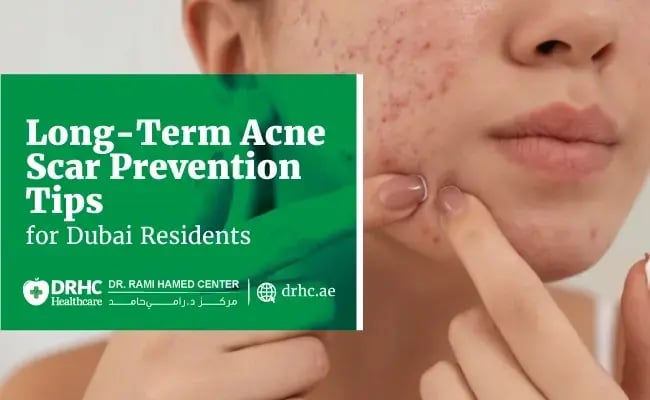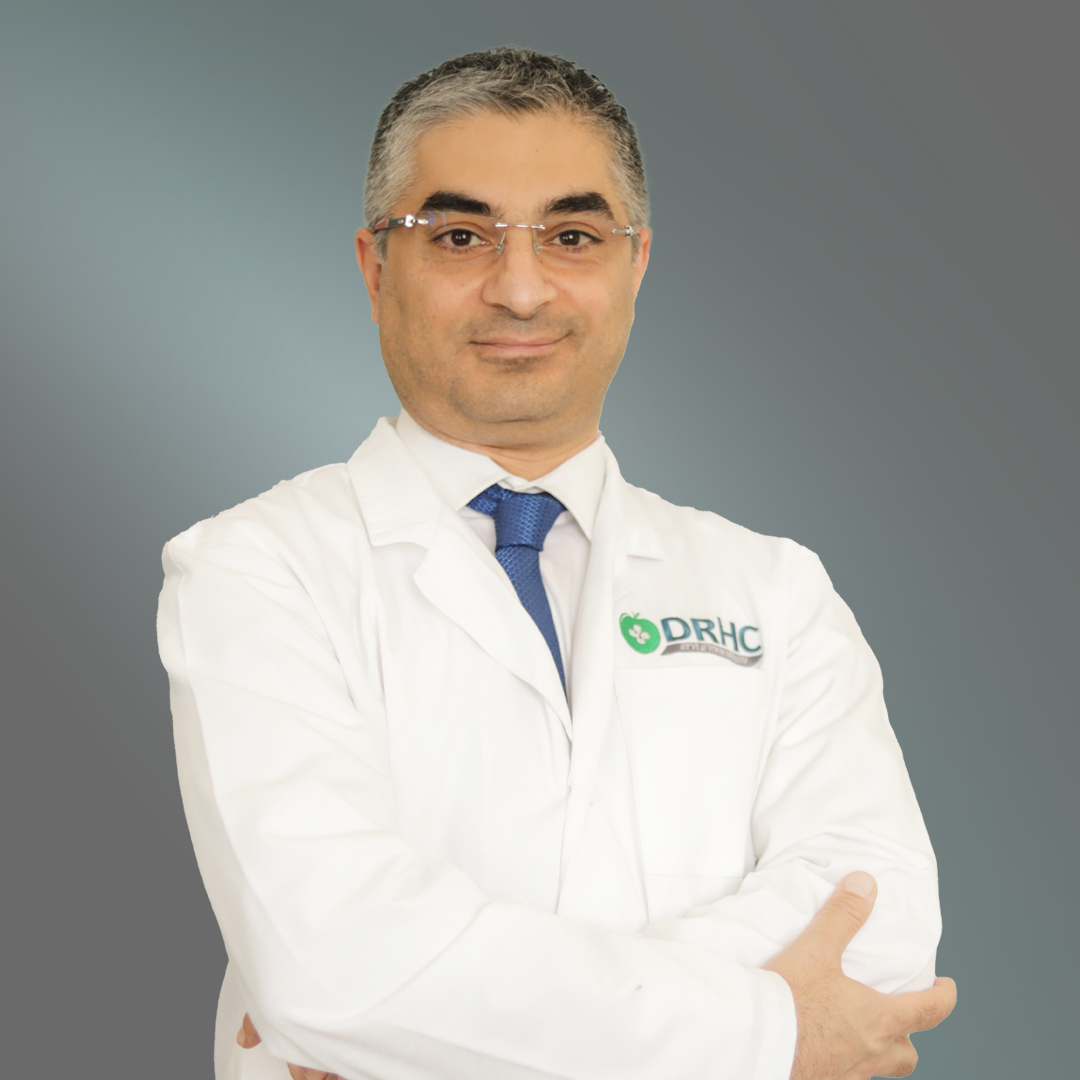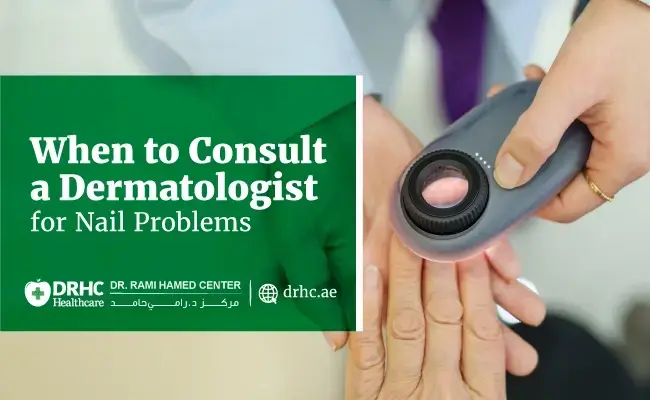
Acne is one of the most common skin concerns among people living in Dubai — and while the city’s warm climate and humidity can sometimes worsen breakouts, the real challenge often comes afterward: acne scars. These marks can linger long after the acne has healed, affecting not just your skin’s texture, but also your confidence.
At Dr. Rami Hamed Center (DRHC) in Dubai, we understand how frustrating it can be to manage acne scars — especially when you’ve tried multiple products or treatments without lasting results. The good news is that acne scarring can often be prevented with the right care, habits, and early intervention.
Here’s a comprehensive guide to help you protect your skin from future scarring and maintain a smoother, healthier complexion.
Understanding Why Acne Scars Form
Before we discuss prevention, it’s important to understand why scars appear. Acne scars form when the skin’s natural healing process is disrupted by inflammation, deep lesions, or improper handling of pimples — such as squeezing or picking.
When acne heals, the body produces collagen, a protein that repairs the damaged skin. Too little collagen leads to depressed (pitted) scars, while too much can cause raised (hypertrophic) scars. Preventing these changes means managing acne early and minimizing irritation during healing.
1. Treat Acne Early — Don’t Wait for Scars to Appear
The most effective way to prevent acne scars is to control acne as soon as possible. Persistent breakouts, especially cystic acne, increase the risk of scarring.
If over-the-counter creams aren’t helping, it’s important to seek professional advice. Dermatologists at DRHC Dubai can identify your acne type and design a treatment plan using safe and proven options such as topical medication, mild chemical peels, or laser therapy to prevent deep lesions from forming.
2. Avoid Picking, Squeezing, or Scratching Pimples
It’s tempting to pop a pimple — but doing so pushes bacteria and debris deeper into the skin, causing more inflammation and potential scarring. Instead, keep your hands away from your face and let your treatment work naturally.
If a spot feels painful or inflamed, applying a cool compress or visiting a dermatologist for a quick in-office treatment can help reduce swelling without damaging the skin.
3. Protect Your Skin from the Sun
In Dubai’s intense sun, unprotected skin can easily develop post-inflammatory hyperpigmentation (PIH) — dark spots that appear after acne heals. Always apply a broad-spectrum sunscreen (SPF 30 or higher) every morning, even on cloudy days.
Sunscreen not only prevents new pigmentation but also helps existing marks fade faster. For added protection, wear a hat or seek shade during peak sunlight hours.
4. Maintain a Consistent Skincare Routine
A gentle, regular skincare routine keeps your skin clear and reduces the risk of new breakouts. Focus on:
- Gentle cleansing twice daily to remove oil and dirt without over-drying
- Oil-free moisturizers to maintain hydration
- Non-comedogenic sunscreen to avoid clogged pores
- Exfoliation (once or twice a week) to remove dead skin cells and support regeneration
Avoid harsh scrubs or alcohol-based products, which can irritate sensitive or acne-prone skin.
5. Support Skin Renewal with Professional Treatments
In Dubai’s climate, heat and humidity can make acne-prone skin more reactive. Professional treatments can help prevent long-term scarring by keeping inflammation and oil production under control.
At DRHC Dubai, dermatology experts may recommend options such as:
- Laser rejuvenation to stimulate collagen and repair early scar formation
- Carbon laser peels to cleanse and refine pores
- Mild chemical peels to improve skin tone and prevent pigmentation
These procedures are safe, effective, and customized to suit your unique skin type and sensitivity.
6. Stay Hydrated and Eat for Skin Health
Your skin’s healing ability depends on overall wellness. Drinking enough water, eating antioxidant-rich foods (like fruits, vegetables, and omega-3 fats), and avoiding excessive sugar can reduce inflammation and support faster skin recovery.
7. Seek Professional Guidance for Persistent Acne
If your acne doesn’t improve with home care, it’s best to consult a dermatologist before scars develop. At DRHC Dubai, our team carefully assesses your skin condition, identifies the underlying cause, and recommends advanced solutions that help both clear acne and protect against scarring.
Frequently Asked Questions (FAQs)
1. Can acne scars completely heal on their own?
Mild scars may fade over time, but deeper scars often require professional treatments like laser therapy or microneedling to fully improve.
2. Does Dubai’s hot weather make acne scars worse?
Yes, excessive heat, humidity, and sun exposure can darken scars or trigger new breakouts. Regular sunscreen use and gentle skincare are essential.
3. When should I see a dermatologist for acne?
If you have frequent breakouts, painful pimples, or early signs of scarring, it’s best to seek professional help as soon as possible. Early treatment prevents long-term damage.
4. Can laser treatments prevent acne scars?
Yes. Certain laser treatments, such as fractional or rejuvenation lasers, can help control acne and stimulate collagen, reducing the risk of permanent scarring.
5. How can I fade existing dark marks from acne?
Dermatologists may recommend chemical peels, laser treatments, or topical lightening agents to reduce pigmentation safely and effectively.
Conclusion: Prevention Is the Best Treatment
Acne scars can be difficult to treat once they form, but the good news is that most scarring is preventable with the right skincare habits and early intervention. By managing acne effectively, protecting your skin from the sun, and seeking expert care when needed, you can preserve your skin’s smoothness and clarity for the long term.
At Dr. Rami Hamed Center (DRHC) in Dubai, our dermatology team specializes in acne management and scar prevention using safe, advanced technologies tailored to your skin’s unique needs.
If you’re struggling with acne or want to prevent future scarring, book a consultation at DRHC Dubai today — and take the first step toward clearer, healthier skin.
📞 Call / WhatsApp: +97142798200
📍 Visit Us: Dr Rami Hamed Center, Dubai Healthcare City
🌐 Website: www.drhc.ae
Topic: Dermatology









Leave a comment